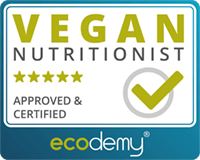Good Reasons For Living Plant-Based
The importance of veganism and types of vegans

Visit activeplantbased for professional help and plant-based nutrition training.
There are several reasons for a person to become vegan. The menu’s composition can vary depending on the reason for choosing a plant-based lifestyle.
All key points
- The main reasons people choose to go vegan are health-related, ethical, environmental, religious, and social
- Our diet affects fellow human beings as much as it does animals.
- Types and subtypes of vegans include Fruitarians or Frugans, Raw vegans, Lifestyle Vegans, Junk food vegans
- For most people, the decision to eat vegan is a combination of different reasons and influences
My body is a temple, not a graveyard, not a tomb for other beings.
Reasons for choosing a vegan diet
- Health
A good supply of nutrients, wholesome plants, gentle preparation - Ethics, morals and values
Identifying with values such as compassion for living beings and avoiding/minimising animal suffering - Ecological and environmental
Sustainability, protection of the environment - Religious and spiritual
Buddhism, Jainism - Social
Striving for social justice; A plant-based diet can feed more people, using fewer resources
I follow a plant-based diet for all the reasons mentioned, except the religious aspect, although I sincerely believe plants are soul food and animals are not.
My primary motive is the moral aspect. I’m aversed to eating my furry friends when I don’t need their body parts to survive and thrive.
Importance of a vegan diet
The way we eat matters. It has an impact on our health and our environment. Obviously, it affects the animals sacrificed in the process of landing on our plates and the ones that die due to environmental factors, collateral damage. Our diet affects fellow human beings as much as it does animals.
If our planet doesn’t fare well, we don’t fare well.
A vegan lifestyle can help improve human health, protect the environment, including the animals and humans benefiting from it and reduce animal suffering. Choosing a vegan diet promotes fair economic relations and social justice.
Influencing factors
Some of us are in a better starting position than others. The following factors might influence switching to a vegan diet, making it easier or demanding a change.
- You’re vegetarian already
(it is not a must, but many vegans were vegetarian before) - Social circle/Influence of others
You have friends or family who live vegan - Key events as a trigger for a change in diet
Mortifying documentaries about intensive livestock farming or seeing how an animal is being slaughtered
Sub/types of vegans
Because there are multiple reasons to follow a vegan diet, there are numerous types and subtypes of vegans.
- Fruitarian or Frugan
A fruitarian feeds on fruits, seeds and nuts. However, roots, tubers, and leaves are not eaten not to damage the parent plant.
I have no idea whether or not this is easy to implement and covers all nutrients. I guess it’s a bit more demanding than being just vegan, but it is doable.
The notion of not wanting to damage the parent plant seems very, very sweet and considerable to me. The day I choose to be a Frugan will also be the day I am a floating, spell-casting Zen Master. - Raw vegan
A raw vegan eats food that is fresh, unheated, or only slightly heated (max. 42 °C). The high fibre in this diet can cause bloating for some of us.
It might be worth trying, but I haven’t yet researched this topic as I am thrilled by steaming hot potatoes. We don’t always have to go all the way; Reminding ourselves to eat raw carrots and bell peppers and making a salad for almost every meal does the job. - Lifestyle vegan
A lifestyle vegan rides the hype wave when it is trendy or considered cool at the moment; whether or not the implementation is consistent depends on various factors. - Junk food vegan
Junk food vegans choose to eat plant-based for primarily ethical reasons. They likely continue eating as they used to, replacing cheese with vegan cheese and meat with mock meat. Health isn’t in the foreground.
It is important to note that most transitions start like that, which is fine. We don’t have to be perfect. Cooking vegan is a learning process, so eating cakes and cookies for a (hopefully short) while is just part of being human. If it helps you be less scared of change and excites you about discovering new tastes, go for it. Don’t make this period last too long, as the effect of vegan junk food is yet to be scientifically researched.
The average vegan
Initial assumptions suggest that ethical reasons play a more significant role than health and ecological motives. That assumption is so far coherent with the vegans I know personally.
For most people, the decision to eat vegan is a combination of different reasons and influences.
If you’re considering transitioning to a vegan diet, you should find out which reasons appeal most to you. According to that, you might have an easier time switching and prioritising what is important to you.

